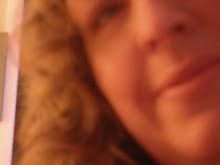Whereas today we expect that we should sleep the night through--and call it insomnia and take a drug if we don't--in times past, the acknowledged natural sleep pattern was quite different. For most of human history, sleep was broken into two segments, with one or more hours of quiet wakefulness in between.
The initial period of slumber was called "first sleep" or "first nap" or "dead sleep." The later interval of sleep was called "second sleep" or "morning sleep". The time of wakefulness was called "watch." Both phases of sleep lasted roughly the same amount of time, but there was no set timetable. Each person slept and waked according to their own rhythm. References to these periods of sleep and wakefulness are so common in pre-industrial writings that it appears to have been common knowledge. Wild animals also sleep in segmented intervals.
A sleep study done in the 1990s by the Institute of Mental Health confirmed this to be our natural pattern. Left to their own tendencies, without clocks or artificial light, the participants gradually eased back into the natural sleep pattern of two periods of sleep with a period of wakefulness in between. In an attempt to recreate conditions of "prehistoric sleep," subject were without artificial light for up to fourteen hours a night. Subjects tended to first lay awake in bed for two hours, sleep for four hours, spend two or three hours in quiet rest and reflection, and fall back to sleep for four hours before awakening and rising the next morning.
When electric lights were invented, people had more hours of activity available to them, and their time awareness shifted. Imagine for a moment if your activity was determined by the natural light of the sun. During the summer, there would be longer hours of active time available, and in the winter, fewer hours. Long dark nights would encourage more sleep, a kind of hibernation. Yet today, we just turn on the lights and ignore seasonal changes of natural light.
 Pic: Willy Whopper
Pic: Willy WhopperSculpture: Mimmo Paladino




Yep, pretty much. I think some issues with depression might be solved with more natural sleep patterns. Also some obesity...because we tend to overindulge in carb-heavy food when we're tired but must stay awake.
ReplyDeleteYeah, so true!!
ReplyDeleteIt boggles my mind reading this, though. That is basically devoting 12 hours - half the day - to sleeping & drifting. In one way it feels like it would be amazing. In another it is so foreign and almost a turn-off.
Hence our dilemma, I suppose. I remember Jane saying that when she was living in her cave, after a while she would go to sleep when it got dark and wake with the sun, naturally. What else are you gonna do, right? What is more natural than that?
I think that is what humanity was supposed to do, sleep with the dark, but with the advent of artificial light that was better quality than flame, we discovered more hours. It was only natural for this to evolve into humanity chasing time, without any real consideration for what it meant for our circadian rhythms.
ReplyDeleteI don't have any idea how to remedy it at this point, because most of us don't have that luxury. But there is some consolation for our woes that we at least know the cause.
I agree. I don't think we can remedy it. We have all lived like this all our lives. But I agree, it is a consolation that we understand why we wake up in the middle of the night. (Although I don't a lot because I'm so sleep deprived because I don't go to sleep until, like, 2am at the moment :( My sleep goes a bit weird in autumn.
ReplyDeleteWonder if things would have been different living in a cave? Oh well :)